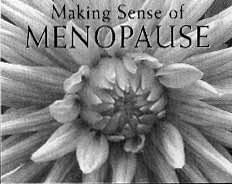



![]()
Hi,
I set up a personal homepage concerning menstruation. It is still under construction and I also set a link to your great page. Maybe you could set one too. I would really be proud.
http://members.aol.com/juliahome1/welcome.html
Thank you so much for the information.
I spoke to my mother yesterday. She is 86 years old. She began her first menstrual period in 1925, and she, her mother and her sister all used rags pinned to their underwear with safety pins. The rags were from old bed sheets or scraps left over from sewing. They washed out the rags after they were saturated.
[Advertising in magazines for Kotex, the first widely successful disposable pad in the U.S.A., began in 1921, but the pad was expensive, and the advertising was meant for upper-middle class whites; I wonder when the first non-Caucasian appeared in an American menstrual hygiene ad?
[I'd bet the majority of American women used rags until the 1940s. American commercial tampons appeared in the early 1930s - Tampax in 1936 - but didn't really catch on until after World War II.The American Leona Chalmers patented the menstrual cup in 1937, but it and its descendants have never been widely used. The most recent one, Instead, just failed financially.]
I asked my mother how she purchased sanitary pads when they became available. She said that they were available in the drug store. There were no special dispensing machines, you just bought them off the shelf. My mother was raised in [a large American city], which was very cosmopolitan. My mother lived on skid row where she and her mother ran a rooming house. They were not dependent on Sears catalogues for merchandise.
Good luck with your project and I greatly appreciate your answer to my question.
Beginning June 19th, a HealthWeek special focusing on menopause will air nationally for one week. The program objectively explores the range of options (both traditional and alternative) that are available to women for managing.menopause. It features Dr.Susan Love, author of the best-selling Dr. Susan Love's Hormone Book [she spoke at the last conference of The Society for Menstrual Cycle Research] and Dr. Marianne Legato, Director of the Partnership for Women's Health at Columbia University. It also details the personal stories of five women.
Healthweek is a weekly PBS consumer health magazine.
 menopause
is the topic of a lecture and discussion in Baltimore, Maryland (U.S.A.),
on Friday, 26 June 1998. Read more!
menopause
is the topic of a lecture and discussion in Baltimore, Maryland (U.S.A.),
on Friday, 26 June 1998. Read more!Irregular menses identify women at high risk for polycystic ovary syndrome (PCOS), which exists in 6-10% of women of reproductive age. PCOS is a major cause of infertility and is linked to diabetes.